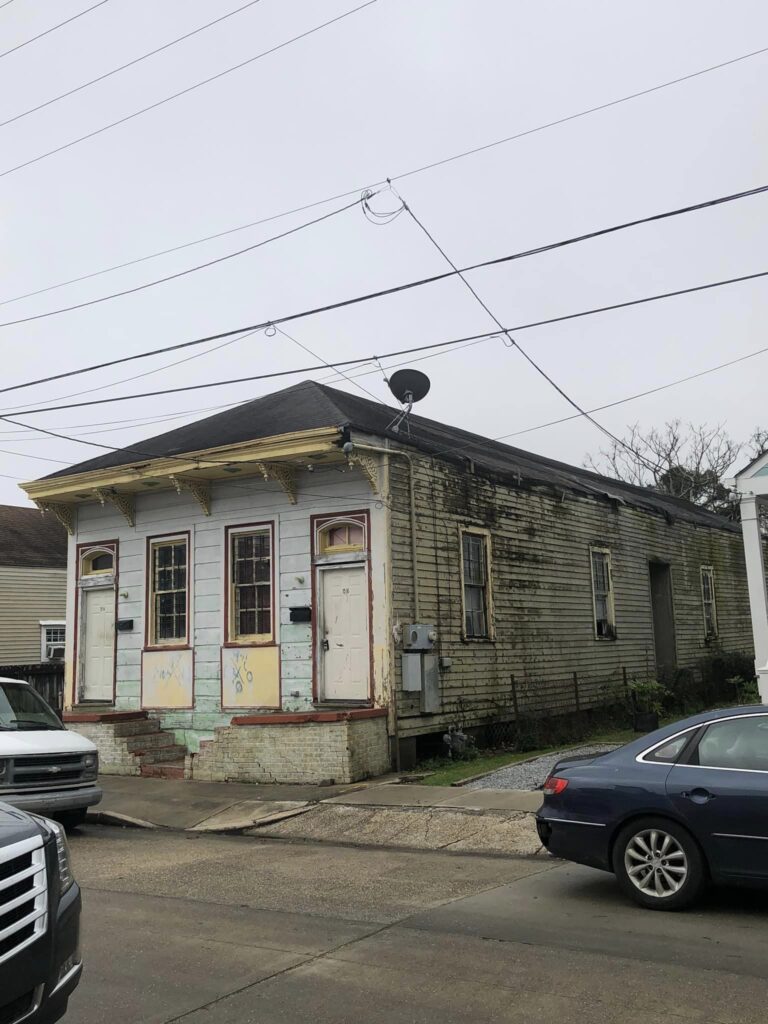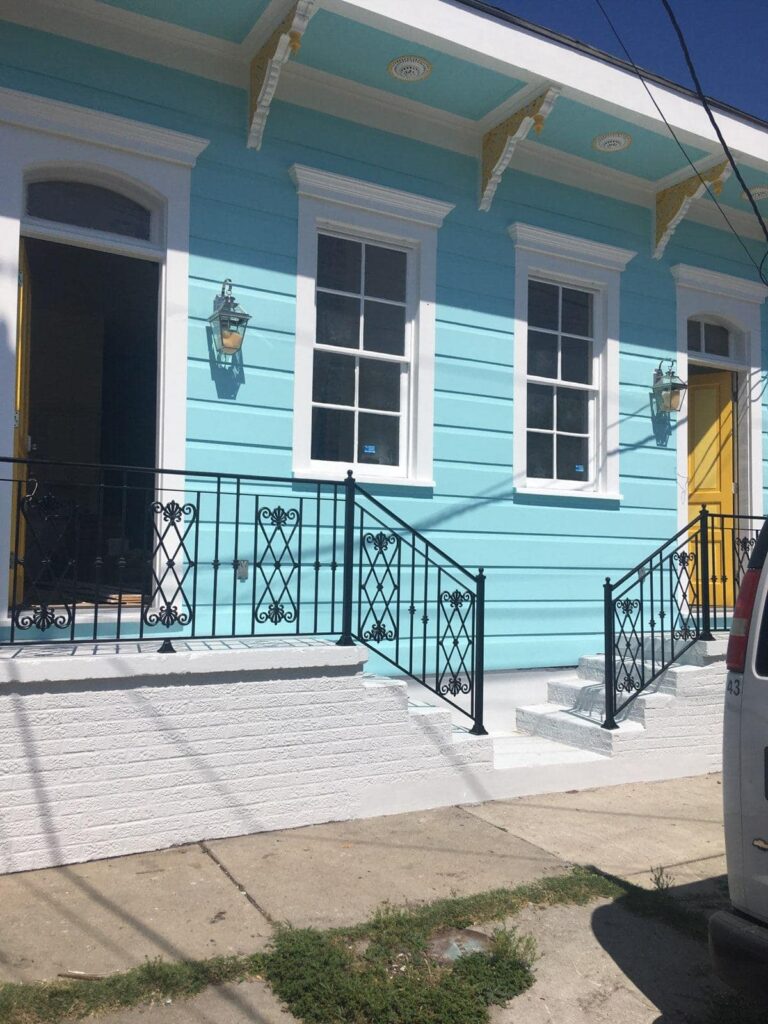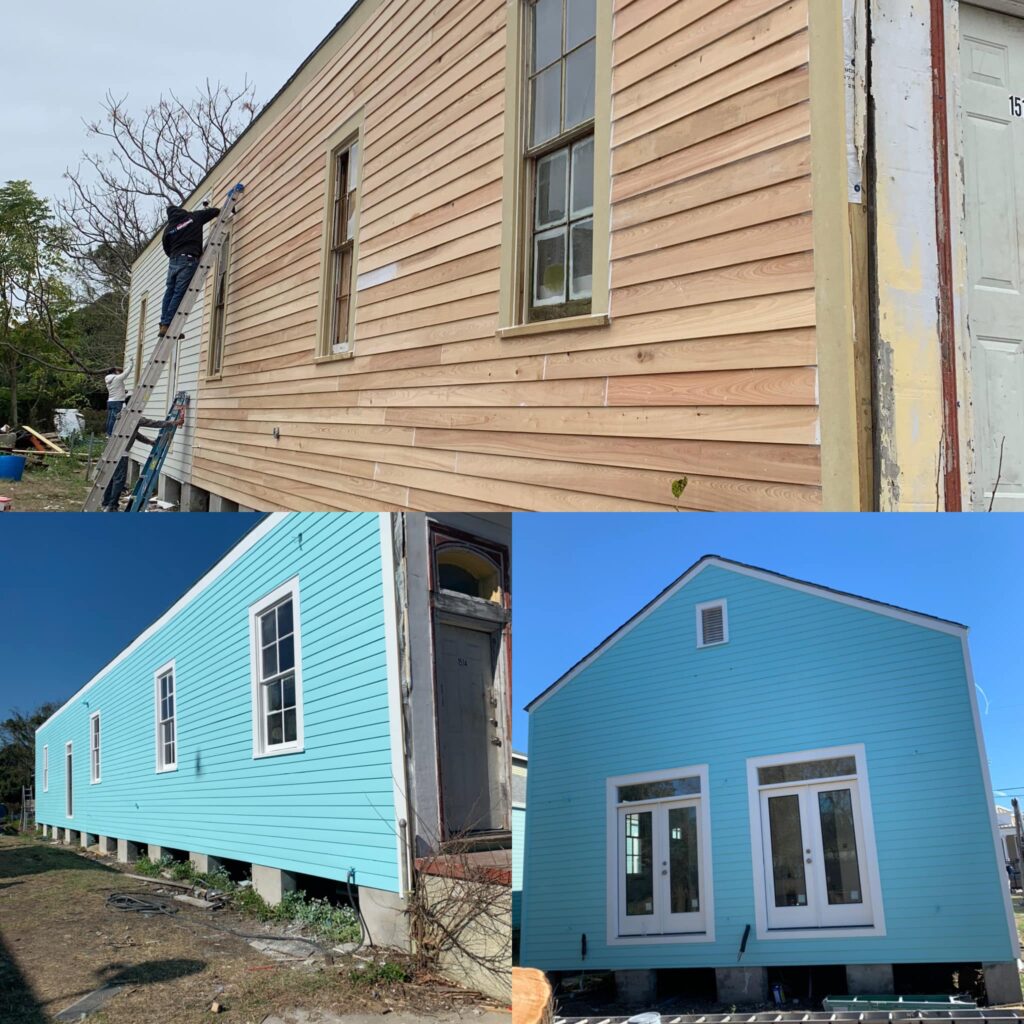Historic New Orleans Home Renovations
New Orleans is a city with a rich history and culture, and its architecture is a major part of that. Many homes and buildings in the city are part of its historic fabric, and renovating them requires careful consideration and attention to detail.
If you own a historic home in New Orleans, Baton Rouge, or the Northshore/Southshore and are planning a renovation, here are some key things to keep in mind:

1. Know the Rules
Historic home renovations in New Orleans require an understanding of the rules and regulations set by the Historic District Landmarks Commission (HDLC). It is important to do your research and obtain necessary approvals before starting any renovation work. The HDLC has specific guidelines to ensure the preservation of historic structures and the surrounding neighborhoods. These guidelines govern everything from the materials used in the renovation to the types of windows allowed. Failure to comply with these guidelines can result in fines and even the reversal of work done.
However, navigating the HDLC regulations can be complex and time-consuming. That’s why working with a professional construction company like QCG Services can be beneficial. Our team is well-versed in the HDLC guidelines and has experience in handling the approval process. We can help you navigate the complexities of the HDLC approval process, ensuring that your renovation project is completed efficiently and accurately.
It’s important to note that the HDLC not only regulates changes to the exterior of historic homes, but also any interior renovations that may impact the structural integrity or overall look of the home. This includes changes to walls, flooring, and even plumbing and electrical systems. With the guidance of an experienced construction company like QCG Services, you can ensure that your renovation meets all HDLC guidelines and maintains the historic integrity of your home.
2. Preserve the Original Features
When it comes to historic renovations in New Orleans, preserving the original features of a historic home is essential. These features, such as the type of roofing material and style of windows, are what give a historic home its unique character and charm. They’re also what the Historic District Landmarks Commission (HDLC), which oversees regulations for historic renovations in the city, aims to protect.
If you’re planning a historic home renovation in New Orleans, it’s crucial to work with a contractor who understands the importance of preserving these original features. They should be able to assess the condition of these features and determine the best course of action to repair or restore them. Additionally, if you’re looking to make any significant changes to your home, such as adding an addition or altering the roofline, you’ll need to get approval from the HDLC before beginning any work.
By preserving the original features of your historic home during renovation, you’re not only maintaining its historic integrity but also adding value to your property. Potential buyers and historians alike will appreciate the effort put into preserving the history and character of the home. And with historic renovations becoming increasingly popular in areas such as Northshore (Covington, Mandeville, etc.), Southshore (Kenner, Metairie, Gretna, Marrero), and Baton Rouge, it’s more important than ever to preserve the unique charm and history of these homes.
3. Respect the Era
When undertaking a historic renovation in New Orleans, it’s crucial to respect the era in which the home was originally built. Striving to maintain the authenticity of a historic home is a hallmark of a quality historic renovation, which is why it’s important to choose a contractor with extensive experience in historic home renovation. Simply adding modern elements that clash with the home’s original style can detract from its historic charm and potentially harm its value. Instead, aim to incorporate modern amenities and features that complement the home’s historic architecture, preserving the character and history of the property. By prioritizing the preservation of historic details and respecting the home’s original era, you can ensure that your historic renovation in New Orleans will be a success.
4. Don’t Remove Original Additions
When it comes to historic renovations in New Orleans, it’s important to remember that even modifications or additions made to the home over time are part of its history. As such, it’s crucial to consult with the Historic District Landmarks Commission (HDLC) before removing any original additions. These modifications may not be part of the home’s original design, but they contribute to its unique story and should be preserved if possible. Working with an experienced historic renovation team can help you navigate this process while ensuring that any changes made to the home maintain its historic integrity.
5. Use Traditional Building Materials and Safe Chemicals
When it comes to historic renovations in New Orleans, using traditional building materials is crucial. This includes everything from the roofing material to the type of wood used in the home’s frame. By using traditional materials, you can ensure that any repairs or renovations blend seamlessly with the existing architecture and help preserve the home’s historic integrity. Additionally, it’s important to avoid using harsh chemicals or modern building materials that can be damaging to the home’s structure or aesthetics.
Preserving a historic home’s beauty and charm requires attention to detail and a deep appreciation for its unique history. When planning a historic home renovation, it’s important to follow these key principles to ensure that your project stays true to the home’s original character. Remember to familiarize yourself with the regulations governing historic renovations in New Orleans, preserve the home’s original features, respect the era in which it was built, consult with the HDLC before removing any original additions, and use traditional building materials whenever possible. By keeping these guidelines in mind, you can transform your historic home into a modern living space that still retains its original charm.

6. Work with Experienced Professionals
Renovating a historic home requires a unique set of skills and knowledge. It’s important to work with experienced professionals who understand the complexities of historic renovations and can guide you through the process.
At QCG Services, we have years of experience in historic home renovations in New Orleans. Our team of skilled professionals can help you navigate the regulations and requirements of the HDLC while preserving the historic character of your home.
In conclusion, a historic renovation can be a complex and challenging process, but with the right approach and guidance, it can also be incredibly rewarding. Take action now and contact QCG Services or give us a call at (504) 800-4126 to begin your historic renovation journey in New Orleans. Preserve the past while embracing the future of your historic home. Reach out to our experienced professionals and let us guide you through the complexities of historic renovations, ensuring your project stays true to the home’s original character. Don’t wait—start the conversation today and transform your historic home into a modern living space that retains its timeless charm.
